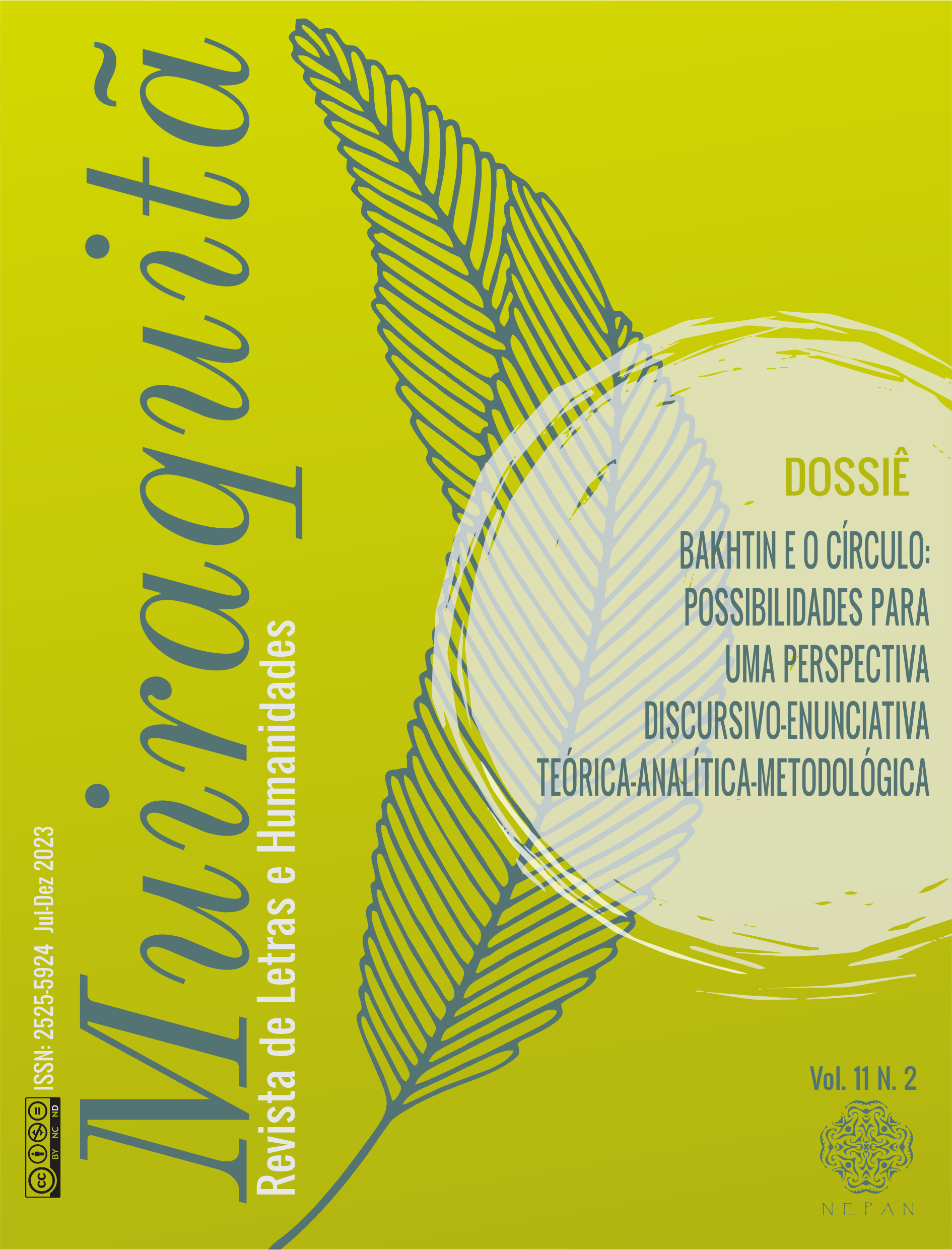“Um Homem Célebre"
an analysis of Machado de Assis' short story from a bakhtinian perspective
DOI:
https://doi.org/10.29327/266889.11.2-11Keywords:
Short story. Machado de Assis. Discourse analysis. Bakhtinian conceptsAbstract
The present article aims to analyze, from concepts explored by Bakhtin's Circle, Machado's short story "Um Homem Célebre", from 1883, which portrays the personal difficulties experienced by the protagonist - the musician Pestana - amid the duality of vocation versus ambition. To do so, the concepts of chronotope, polyphony, alterity, and carnivalization, were chosen, going mainly through Bakhtin (1987; 1997; 1998; 2006), Bezerra (2016), Faraco (2009), and Fiorin (2017). In addition, to investigate the issues of vocation and ambition around music in the capitalist era and its consequences, we started from the ideas about Cultural Industry, developed by Adorno and Horkheimer (2002). The methodology used was bibliographic research, which is developed by the investigation and study of previously developed and discussed materials. Thus, it was inferred that Machado's short story is still extremely current, since it deals with universal themes such as the artistic making, success, fame, vocation and ambition.
Downloads
References
ADORNO, T. W.; HORKHEIMER, M. Indústria cultural e sociedade. São Paulo: Paz e Terra, 2002.
ARANHA, M. L. A. Filosofia da educação. 2. ed. São Paulo: Moderna, 1996.
ASSIS, M. Um Homem Célebre. In: ASSIS, M. Várias Histórias. Rio de Janeiro: W. M. Jackson Inc., 1946.
BAKHTIN, M. A cultura popular na Idade Média e no Renascimento: o contexto de François Rabelais. São Paulo: HUCITEC, 1987.
BAKHTIN, M. Estética da Criação Verbal. 2. ed. São Paulo: Martins Fontes, 1997.
BAKHTIN, M. Formas de tempo e de cronotopo no romance: ensaios de poética histórica. In: BAKHTIN, M. Questões de literatura e estética – a teoria do romance. São Paulo: Unesp, 1998.
BAKHTIN, M. Marxismo e Filosofia da Linguagem. 12. ed. São Paulo: HUCITEC, 2006.
BOSI, A. O conto brasileiro contemporâneo. Editora Cultrix: São Paulo, 1974.
BEZERRA, P. Polifonia. In: BRAIT, B. (org.). Bakhtin: conceitos-chave. 5. ed. São Paulo: Contexto, 2016. p. 191-200.
CORTÁZAR, J. Valise de Cronópio. São Paulo: Perspective, 2006. p. 142-163.
FARACO, C. A. Linguagem & diálogo: as ideias linguísticas do círculo de Bakhtin. São Paulo: Parábola Editorial, 2009. p. 45-94.
FIORIN, J. L. Introdução ao pensamento de Bakhtin. 2. ed. São Paulo: Contexto, 2017.
GIL, A. C. Métodos e técnicas de Pesquisa Social. 6. ed. São Paulo: Atlas, 2008.
KALIFE JÚNIOR, L. F. A obra certa, a pessoa errada. 2013. Disponível em: http://ebooks.pucrs.br/edipucrs/anais/XIII_semanadeletras/pdfs/luiskalife.pdf. Acesso em: 10 jun. 2023.
LAKATOS, E. M.; MARCONI, M. A. Fundamentos de metodologia científica. 5. ed. São Paulo: 2003.
MACHADO, I. L. A ironia como estratégia comunicativa e argumentativa. Bakhtiniana. São Paulo, n. 9, p. 108-128, 2014.
PIRES, V. L. Dialogismo e alteridade ou a teoria da enunciação em Bakhtin. Organon: Revista do Instituto de Letras da UFRGS. vol. 16, n. 32-33, p. 35-48, 2002. Disponível em: https://doi.org/10.22456/2238-8915.29782. Acesso em: 08 jun. 2023.
SOERENSEN, C. A carnavalização e o riso segundo Mikhail Bakhtin. Travessias. v. 05, n. 1, p. 318-331, 2011.
Downloads
Published
How to Cite
Issue
Section
License
Copyright (c) 2023 Luana da Silva Coelho, Raphael Bessa Ferreira

This work is licensed under a Creative Commons Attribution-NonCommercial-NoDerivatives 4.0 International License.

















